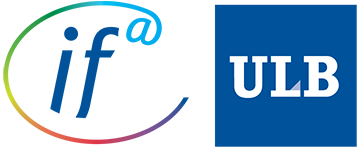Dr Merijn Oudenampsen
No nonsense: the Dutch depoliticized neoliberal turn- Supervisor: Daniel Zamora
- Research center: Germe
- Research start date: 01.10.2021
Description
In the last two decades, a vast literature has emerged on the topic of neoliberalism. Intellectual historians, sociologists, political economists and human geographers have produced a series of acclaimed books tracing the development of neoliberalism from its birth as an intellectual movement to its implementation as a policy paradigm (Burgin, 2012; Mirowski & Plehwe, 2009; Peck, 2010). A notable absence in this literature is the case of the Netherlands. In these last years, the Netherlands has played a leading role on the European stage as an outspoken advocate of austerity and market-oriented reform. Dutch politicians figured prominently in the European debt crisis and have headed opposition to European debt financing, leading the coalition of the so-called ‘frugal four’. Austerity has also been the domestic policy of choice: the Dutch response to the debt crisis consisted of a far-reaching program of fiscal consolidation and structural reform, provoking rare criticism from both IMF (2012) and OECD (2012). The deeper historical origins of Dutch austerity politics and the close links with the neoliberal turn of the 1980s however, have hardly been explored. From 1982 onwards, subsequent centre-right governments under the leadership of the Christian Democrat Ruud Lubbers enacted an ambitious series of market-oriented reforms, under the slogan ‘more market, less government’. It proved to be a lasting change in priorities. It is now commonly understood that in the 1980s, a broad shift in political and economic thinking took place in the Netherlands, a change in policy paradigm that still informs policymaking today (Kuiper, 2014; Stellinga, 2012). But how that exactly happened and what ideas informed this policy paradigm remains surprisingly underexplored. The same goes for the institutional context and power constellations that allowed these new ideas to come to the fore. Building on my previous research, the aim of this research is to write the first monograph on the Dutch neoliberal turn of the 1980s, while exploring the persistence of these ideas in the Dutch response to the European debt crisis.
Biography
Merijn Oudenampsen (1979, Amsterdam) is a sociologist and political scientist, specialised in political ideology research. He works as a Marie Curie fellow at the Université Libre de Bruxelles (ULB), researching the political history of Dutch neoliberalism.
He pursued his PhD at Tilburg University, focused on the intellectual backgrounds of the swing to the right in Dutch politics around the turn of the century. A revised version of the PhD was published by Routledge and received the 2021 Choice Outstanding Academic Titles Award. After his PhD, he worked at the University of Amsterdam on the project Market Makers. He has published in journals such as Comparative European Politics, Economy and Society, Perspectives on European Politics, and the Journal of European Public Policy. He is presently writing an English monograph on the Dutch neoliberal turn.
Publications
2022
Oudenampsen, M. (forthcoming). De markt als meester: Een geschiedenis van het neoliberalisme in Nederland. Boom Geschiedenis.
Oudenampsen, M. Neoliberal sermons: Christian democracy and neoliberal governmentality. Economy and Society. DOI: 10.1080/03085147.2022.1987743
2021
Oudenampsen, M., & Mellink, A. G. M. The roots of Dutch frugality: The role of public choice theory in Dutch budgetary policy. Journal of European Public Policy. DOI: 10.1080/13501763.2021.1936130
Oudenampsen, M., Mellink, A. G. M., Kösters, R., & van Rossum, M. Not so consensual after all: A new perspective on the 1980s. Tijdschrift voor Sociale en Economische Geschiedenis, 18(1) 2021, 5-18.
Oudenampsen, M., & Mellink, A. G. M. Bureaucrats first: The leading role of policy makers in the Dutch paradigm-shift of the 1980s. Tijdschrift voor Sociale en Economische Geschiedenis, 18(1) 2021, 19-52.
Oudenampsen, M., Mellink, A. G. M., van Rossum, M., & Kösters, R. (Eds.) The Dutch neoliberal turn. Tijdschrift voor Sociale en Economische Geschiedenis, 18(1) 2021.
Oudenampsen, M. (2021). The riddle of the missing feathers: Rise and decline of the Dutch Third Way. European Politics and Society, 22(1), 38-52. https://doi.org/10.1080/23745118.2020.1739198
Oudenampsen, M. (2021). The Rise of the Dutch New Right: An Intellectual History of the Swing to the Right in Dutch Politics. (Extremism and Democracy). Routledge.
2020
Oudenampsen, M. (2020). Crisis? Zet de geldpers maar lekker aan. NRC Handelsblad. https://www.nrc.nl/nieuws/2020/11/05/crisis-zet-de-geldpers-maar-lekker-aan-a4018892
Oudenampsen, M. (2020). Between conflict and consensus: The Dutch depoliticized paradigm shift of the 1980s. Comparative European Politics, 18(5), 771-792. https://doi.org/10.1057/s41295-020-00208-3
Oudenampsen, M. (2020). How US Neocons Inspired the Netherlands’ New Radical Right. Jacobin Magazine. https://www.jacobinmag.com/2020/10/united-states-neoconservative-the-netherlands-new-radical-right
Mellink, A. G. M., & Oudenampsen, M. (2020). Pleidooi voor meer marktwerking is geen recente bevlieging. NRC Handelsblad.
Oudenampsen, M. (2020). Dromen van het neoliberalisme. De Groene Amsterdammer, (27). https://www.groene.nl/artikel/dromen-van-het-neoliberalisme
Mellink, A. G. M., & Oudenampsen, M. (2020). Schuld en boete: De dunne jas van het kapitalisme . De Groene Amsterdammer, 144(22), 20. [4].
Oudenampsen, M. (2020). De mens raakt vermalen tussen twee elites. NRC Handelsblad, Boeken. https://www.nrc.nl/nieuws/2020/02/20/de-mens-raakt-vermalen-tussen-twee-elites-a3991128
Oudenampsen, M. (2020). Wim Kok en de mythe van het poldermodel: [Bespreking van: M. Krop (2019) Wim Kok : een leven op eigen kracht. - Deel 1: Voor zijn mensen, 1938-1994]. De Nederlandse Boekengids, 5(2), 32-33. https://www.nederlandseboekengids.com/20200216-merijn-oudenampsen/

